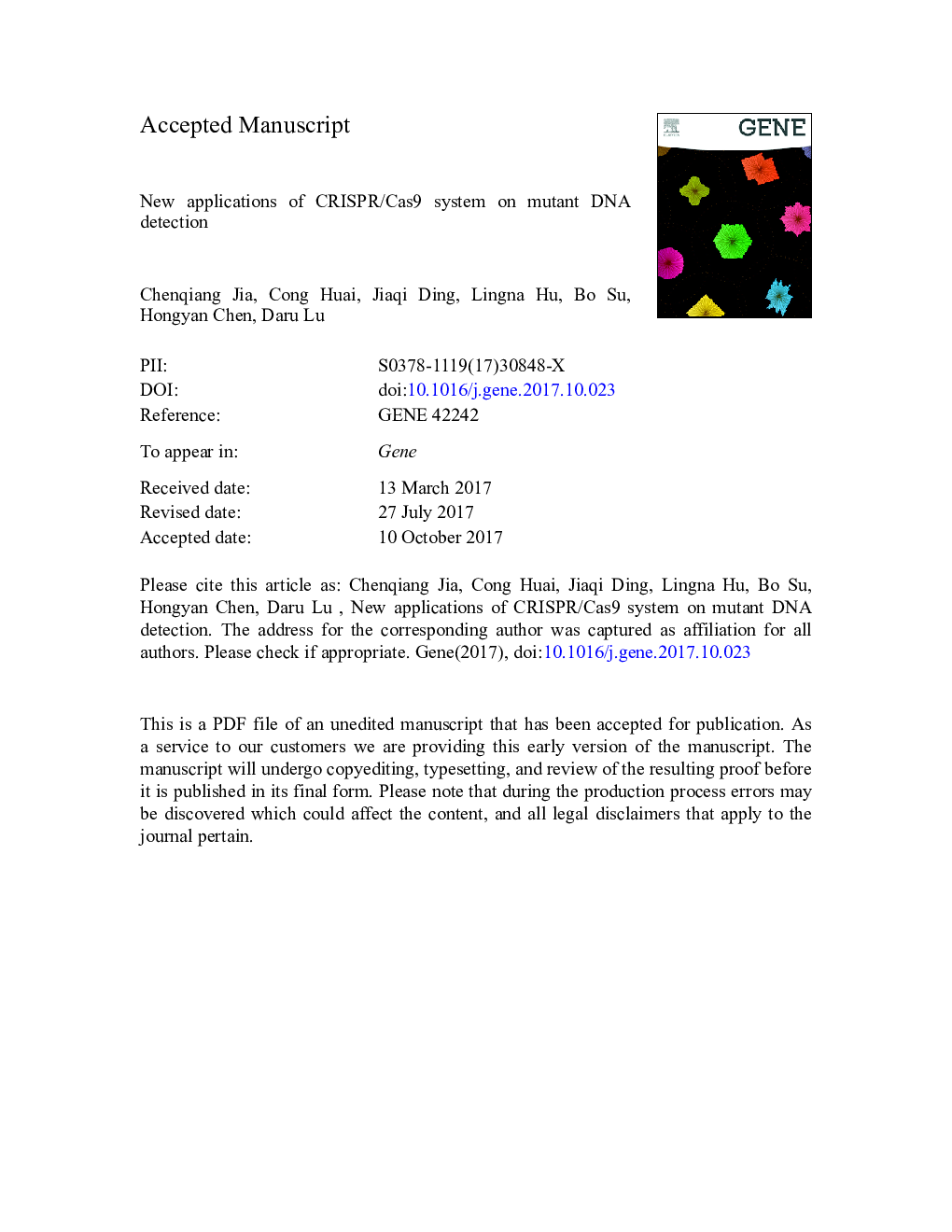| Article ID | Journal | Published Year | Pages | File Type |
|---|---|---|---|---|
| 8645887 | Gene | 2018 | 25 Pages |
Abstract
The detection of mutant DNA is critical for precision medicine, but low-frequency DNA mutation is very hard to be determined. CRISPR/Cas9 is a robust tool for in vivo gene editing, and shows the potential for precise in vitro DNA cleavage. Here we developed a DNA mutation detection system based on CRISPR/Cas9 that can detect gene mutation efficiently even in a low-frequency condition. The system of CRISPR/Cas9 cleavage in vitro showed a high accuracy similar to traditional T7 endonuclease I (T7E1) assay in estimating mutant DNA proportion in the condition of normal frequency. The technology was further used for low-frequency mutant DNA detection of EGFR and HBB somatic mutations. To the end, Cas9 was employed to cleave the wild-type (WT) DNA and to enrich the mutant DNA. Using amplified fragment length polymorphism analysis (AFLPA) and Sanger sequencing, we assessed the sensitivity of CRISPR/Cas9 cleavage-based PCR, in which mutations at 1%-10% could be enriched and detected. When combined with blocker PCR, its sensitivity reached up to 0.1%. Our results suggested that this new application of CRISPR/Cas9 system is a robust and potential method for heterogeneous specimens in the clinical diagnosis and treatment management.
Keywords
Related Topics
Life Sciences
Biochemistry, Genetics and Molecular Biology
Genetics
Authors
Chenqiang Jia, Cong Huai, Jiaqi Ding, Lingna Hu, Bo Su, Hongyan Chen, Daru Lu,
